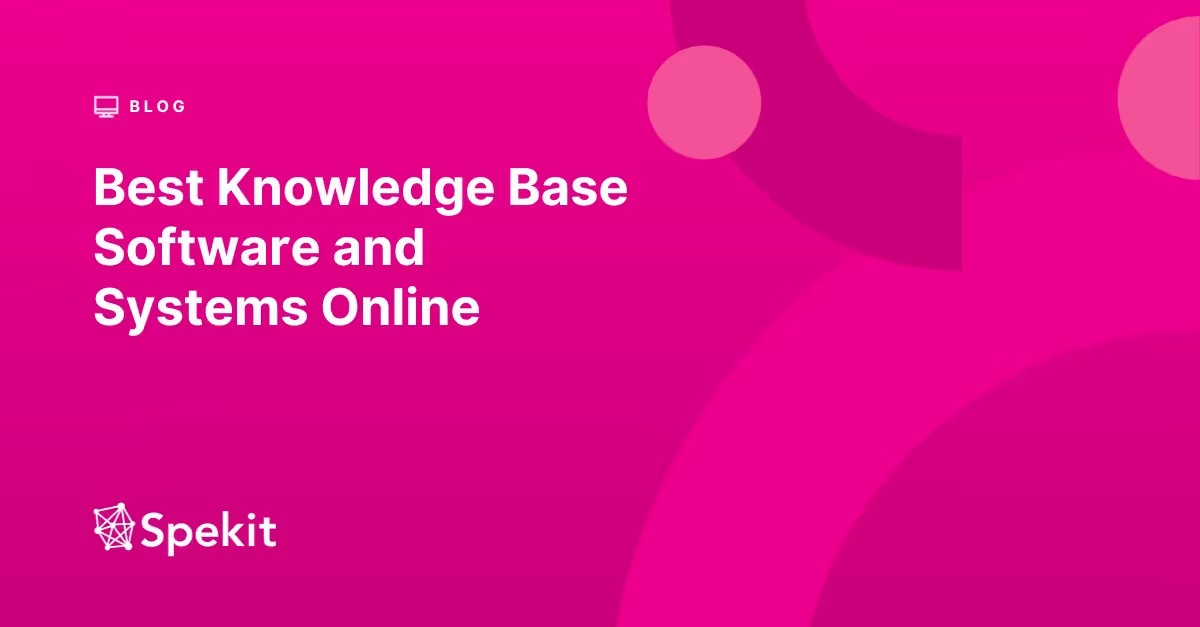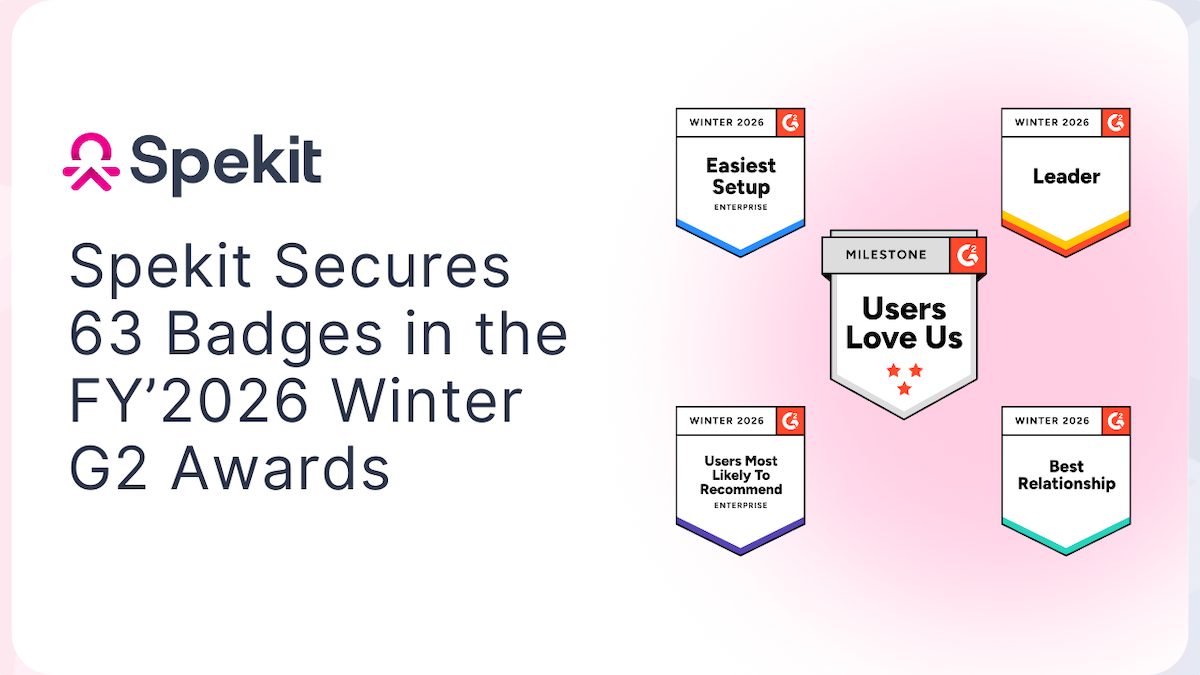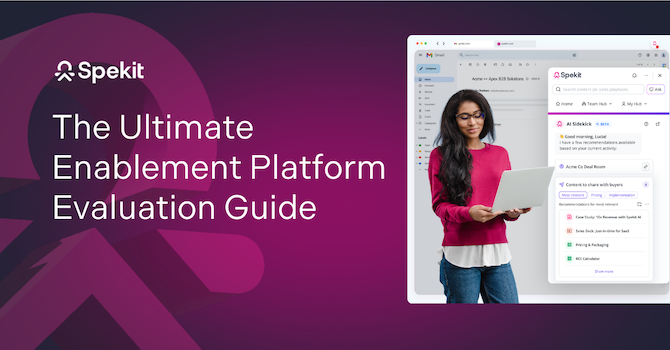In this post, we’ll be looking at some of the best knowledge base software on the market and how these tools can help streamline workflows and improve processes.
In this digital age, most companies are faced with two major problems;
- Dealing with and managing an ever-growing volume of inbound information from multiple sources
- Being able to use that data to make better-informed business decisions.
This is where knowledge base software comes in.
Knowledge base software comes under the same umbrella as knowledge management solution software and learning management systems (LMS).
In addition, these software and systems are designed to capture and store data from multiple sources. Then make it easily available to create content from, share, communicate, analyze, and more.
Therefore, if you’re not yet using knowledge base software to help you manage your database of company knowledge, you’re holding yourself and your team back.
What Is Knowledge Base Software?
In its simplest form, an online knowledge base is a library or a collection of information. However, this information can come from anywhere, any number of sources, and be in just about any format.
What’s important is that you’re able to store, organize, and use that data. Otherwise, what good is it?
Above all, this is what knowledge base software does. The best software on the market integrates with the tools you’re already using, organizes all of your data, and enables you to use that data in a multitude of ways. For example, platforms like Spekit offer SharePoint integration and Google Drive integration, allowing teams to seamlessly connect their knowledge base with existing document management systems. If you’re looking for a comprehensive sales knowledge management system that enhances onboarding, training, and workflow integration, Spekit is a top choice.
Why Is It Important To Use Knowledge Base Software?
According to a report by tech giant McKinsey & Company, the average worker spends around 20% of their time each week looking for internal information.
That’s the equivalent of losing one day per week, just searching for information.
Moreover, no matter how effective you think your processes are if you’re basic tools like spreadsheets and Google docs and storing data in multiple locations, without content naming guidelines, you’re swimming against the tide.
Introducing knowledge base software will have a huge impact on how efficiently you work with your data, which will flow through every department and employee within your organization.
Some of the core areas within an organization where effective knowledge bases prove invaluable are:
Human Resources
Creating and sharing onboarding and training materials and resources can greatly impact an organization’s bottom line.
According to the Harvard Business Review, up to 20% of staff turnover occurs within the first 45 days of employment. The number one reason being lack of onboarding and support.
Client-Facing Teams
Client-facing teams such as customer support and sales teams are at the forefront of a business.
In other words, the better equipped they are with the data, tools, and sales collateral they need to understand their customers, the better they will perform.
IT Support
With most companies relying on tech to drive their business, IT support becomes an integral – and often expensive – an arm of a business. In addition, knowledge base software enables the creation of centralized wiki databases, how-to support guides, the ability to ask questions, and more, all while leveraging integrated sales enablement analytics to track engagement and optimize performance.
In addition, knowledge base software enables the creation of centralized wiki databases, how-to support guides, the ability to ask questions, and more.
With all of this in mind, here are 8+ of the best knowledge base software platforms to consider:
9 Best Knowledge Base Software
1. Spekit
Spekit is the #1 knowledge base software on the market. The range of tools, integration options, and other applications incorporated in this software puts Spekit ahead of the competition.
One of the main features that separate Spekit from other knowledge software is its extensive Salesforce integration. Salesforce is the market-leading CRM; being able to use it along with Spekit makes creating and sharing employee training as quick and easy as it gets.
In other words, creating and sharing knowledge has never been easier. By implementing Spekit into your organization, you’ll improve your onboarding and training processes, streamline communication, and ultimately improve your ROI on time spent.
Pros
- Seamless integration with Salesforce, the market-leading CRM
- The UI is easy to navigate and intuitive to use with no prior experience.
- Can easily consolidate knowledge, set permissions, share training information, and more
Cons
- Lack of onboarding support with their Lite plan
Spekit Pricing
- Spekit's pricing model is completely customizable based on the challenges, size, and scope of your organization. Chat with the Spekit team to learn how just-in-time enablement can help your reps hit their revenue targets.
2. Userguilding
Userguiding is a knowledge base and microlearning tool that enables users to “build interactive product tours in minutes with our user-friendly “no coding” solution.”
In addition, the strength of Userguiding is how simple it is to use. All you need to do is install the Chrome Extension, click the icon, and start adding elements and recording actions to create a “product tour.”
For instance, you can use this to create onboarding materials, ongoing training resources, collect feedback, add call-to-actions, and more.
Some large organizations like Sendloop and Leadworx use Userguiding to improve internal and external communication, which results in a decrease in support tickets and an increase in engagement and survey response rates.
Pros
- Good range of templates and tools out of the box
- Detailed analytics on the backend to track engagement
- Minimal training and experience required; Chrome extension is easy to use
- Quick and easy to produce product walkthroughs and other resources and materials
Cons
- Lacking mobile support
- Better suited to quick guides and walkthroughs, some users will be left wanting more flexibility.
Userguiding Pricing
- Start-Up Plan: $99/mo. Their Start-up plan enables 2,000 monthly active users and a single team member. You’ll also get access to useful guides, onboarding checklists, and some other tools.
- Growth Plan: $299/mo. This plan increases the active users to 5,000/mo and allows unlimited team members to connect. You’ll also get access to additional tools and features.
- Enterprise Plan: $Custom pricing. If your requirements exceed 5,000 monthly users, a team member will work out a custom plan to fit your needs.
3. Whatfix
Whatfix is a digital adoption and knowledge base software that provides a range of tools to help “unlock the true value of your enterprise applications.”
This software enables you to easily create customized guides, walkthroughs, and other onboarding and training materials and resources for your employees and hires.
You can create and pivot from a central knowledge base that contains all of your organization’s information. Above all, Whatfix allows you to start assigning permissions, sharing data, tracking engagement, and various other applications to help reduce time, increase ROIs, and make communication seamless and easy.
Pros
- Good tools for creating onboarding walkthroughs and training materials
- The analytics and reporting tools provide detailed insights.
- Seamlessly integrates with a wide range of other tools.
- Group editing and assigning permissions are easy to assign and manage.
Cons
- No Salesforce integration
- Walkthroughs do not reinforce key learning points and lack some of the engagement tools other software offers.
Whatfix Pricing
Whatfix does have some flexible pricing options. However, they work on a case-by-case basis. You’ll need to reach out and speak with a team member to work out a plan.
Read our Whatfix review .
4. Lessonly
Lessonly has one of the simplest yet effective taglines; “Do better work.”
Doing better work using Lessonly means creating a knowledge base and having a range of powerful and simple to use tools to use that knowledge.
For instance, you can automate newsletters and communications, track employee training, create lessons, collect feedback, and more.
In addition, Lessonly also has a tool called Lessonly for Chrome. This is a pop that stays with someone while they browse the web, making suggestions and enabling them to ask questions for quick answers and solutions.
Pros
- Incredibly simple software anyone can pick up and use
- Cloud-based technology is fast and enables easy global communication.
- The chrome plugin makes helpful suggestions.
- The interface is clean and easy to navigate.
Cons
- Knowledge lives outside of an employee’s day-to-day workflow.
- Lacks integrations with key tools such as Salesforce, Slack, and more
Lessonly Pricing
- Pro: Contact for a custom quote. Their Pro plan opens up access to an intuitive lesson builder, surveys, quizzes, event tracking, and more.
- Pro + Coaching: Contact for a custom quote. This plan includes screen capture and webcam recording, along with some other tools and features.
Read our Lessonly review .
5. Brainshark
Brainshark is a knowledge base software designed to help customer-facing teams. It does this by providing all the tools you need to educate, inspire, and track your employees’ performance.
Self-billed as an “enablement” platform, Brainshark aims to provide a simpler path to success. For some users, this means delivering communication and training resources. For others, it’s crunching data and looking for areas where improvements can be made.
One of the core ways Brainshark does this is by making it easy to create training materials and scorecards. You can then use these to diagnose skill gaps based on the results. Enabling you to deliver training better tailored to an individual.
Pros
- Plenty of fun and dynamic quiz and scorecard templates
- Analytics gives valuable insights into how individuals are performing.
- Gives you the ability to identify areas for improvement within your organization
- Ideal for keeping in touch with remote customer-facing teams and improving customer experience
Cons
- Content lives outside of your sales team’s day-to-day workflow.
- Lack of flexibility when sharing content and communications
Brainshark Pricing
- PRO: Contact for a custom quote. Their PRO Plan allows access to all of Brainshark’s training applications and content.
- Premier: Contact for a custom quote. In addition, This plan includes all the features in their PRO Plan plus additional Coaching and Practice tools.
6. Guru
Guru is a little different from the other knowledge base software on this list. This software uses intelligent AI to understand how you work, then predict when and where you’ll need certain bits of knowledge.
Ultimately, Guru captures your team’s information, stores, and organizes it, then makes that information available when you need it.
Similarly, operating from a Chrome Extension, Guru basically injects into you and your team’s workflow. Meaning there is less back and forth looking for data and more time spent getting work done.
Pros
- FREE plan means you can test Guru without committing to a paid plan
- Integrates with popular tools
- Easy to use with no coding or technical knowledge
Cons
- However, AI can be frustrating at times as it doesn’t always deliver the right information.
- Lacking some workflow capabilities
Guru Pricing
- Starter Plan: FREE. Their Starter Plan is ideal for small teams or anyone wanting to test the software without committing. In addition, you can integrate with Slack, GSuite, and some other tools, use the browser extension, and more.
- Builder Plan: $14/mo. With their Builder Plan, you get everything in the Starter Plan, as well as analytics, knowledge triggers, API access, and some other functionality.
- Expert Plan: $24/mo. This plan includes everything in the Builder plan, along with advanced AI, suggest text, and more tools.
Read our Guru review .
7. TalentLMS
TalentLMS is, as the name suggests, primarily an LMS (learning management system).
At the heart of every LMS is a knowledge base. This is where TalentLMS pulls the information to enable users to create onboarding processes, training materials, and more.
In addition, this software comes with an extensive library of courses, templates, animated quizzes, and more inside the TalentLibrary. Anyone can get started creating walkthroughs and training materials with just a few clicks.
If you have a large or growing organization, this might be the tool for you. It’s capable of handling large amounts of data and users, and they have plans that scale with the number of users.
Pros
- Intuitive UI layouts and easy navigation provide a smooth user experience.
- Great for medium to large organizations and scales up with users
- Quick and easy to create videos, guides, and other materials and resources
Cons
- Basic coding is an advantage as text and code editors are complex.
- Users have to leave their workflow to use the software.
TalentLMS Pricing
TalentLMS has structured their pricing plans into tiers based on how many users you need:
- Free: FREE. You can get started for free with up to 5 users and 10 courses.
- Starter: $59/mo. This plan enables up to 40 users and unlimited courses.
- Basic: $129/mo. This plan enables up to 100 users and unlimited courses.
- Plus: $249/mo. This plan enables up to 500 users and unlimited courses.
- Premium: $429/mo.This plan enables up to 1000 users and unlimited courses.
8. Trainual
Trainual is a learning management system (LMS) and knowledge base software that enables users to easily create training resources, processes, wikis, SOPs, and more.
The strength of this software is the library of high-quality templates ready to use out of the box. Similarly, there is also a good deal of flexibility around creating, customizing, and sharing content.
Moreover, it integrates with all the major tools and platforms you’re already using, such as Basecamp, Asana, Dropbox, Slack, and so on. Meaning you can integrate Trainual into your organization and current processes with ease.
Pros
- An excellent range of templates makes creating resources from scratch easy
- Extensive range of integration options with other tools
- Real-time tracking data as employees are consuming content
- 7-day free trial available so you can try Trainual before committing to a plan
Cons
- Resources and training content live outside of an employee’s workflow
- However, no Salesforce integration
Trainual Pricing
- PRO: $99/month. Their PRO Plan opens up access to a library of training materials and templates, giving you access to unlimited documentation and other features.
- Premium: $149/mo. In addition, this plan includes all the features in their PRO plan, plus phone support and coaching, screen recording, access to stock photo libraries, and more.
9. EduMe
Self-billed as “The modern training solution for a remote workforce,” EduMe is a mobile-based knowledge base and micro-learning platform.
Aimed primarily at businesses with a remote workforce, EduMe makes delivering learning content easily and effectively via mobile.
For instance, being able to send out time-sensitive communications, learning materials and provide answers to questions at the touch of a button is invaluable for some businesses.
Above all, if your teams rely on timely communications or mobile devices to streamline their workflow, it’s worth taking a closer look at EduMe.
Pros
- A bespoke solution for remote teams using mobile devices
- Deliver content in real-time, quickly, and reliably
- Create surveys and quizzes to gather insights into your workforce
- Track performance in real-time and gain insights via detailed analytics
Cons
- Limited compatibility with other tools, no Salesforce integration
- Aimed at mobile-first users, not ideal for desktop users
EduMe Pricing
EduMe has three pricing plans; Starter, Pro, and Enterprise. However, you can try each for free, although you’ll need to contact them for a custom price quote.
Final Thoughts
In conclusion, you can see from our review of the knowledge base solutions above; each software has its own pros and cons. Whether you’re looking for a good suite of content management tools or a more effective means of sharing information, there’s software out there to fit your unique needs best.
We always recommend finding software that most closely aligns with your business, and then asking for a demonstration.
Above all, for the most complete solution off the shelf with a wide range of functionality, Salesforce in-app guidance and integration, and, most importantly, the ability to use the platform across your day-to-day workflow, we have to recommend Spekit.
Digital enablement solutions like Spekit are the perfect complementary layer to any technology or can replace your digital adoption platform andknowledge base software tools altogether. To see it in action, sign up for a Spekit demo today!







